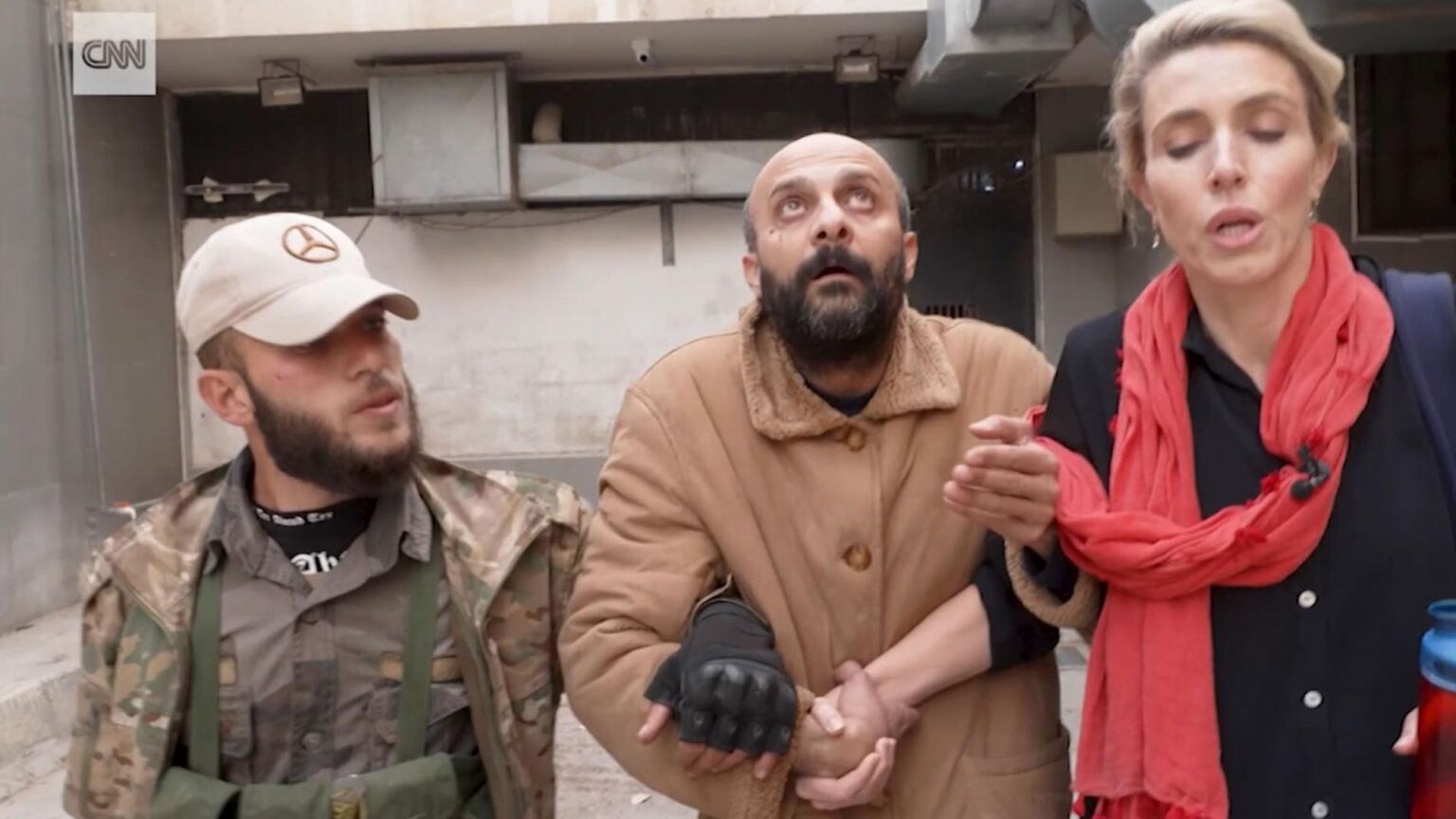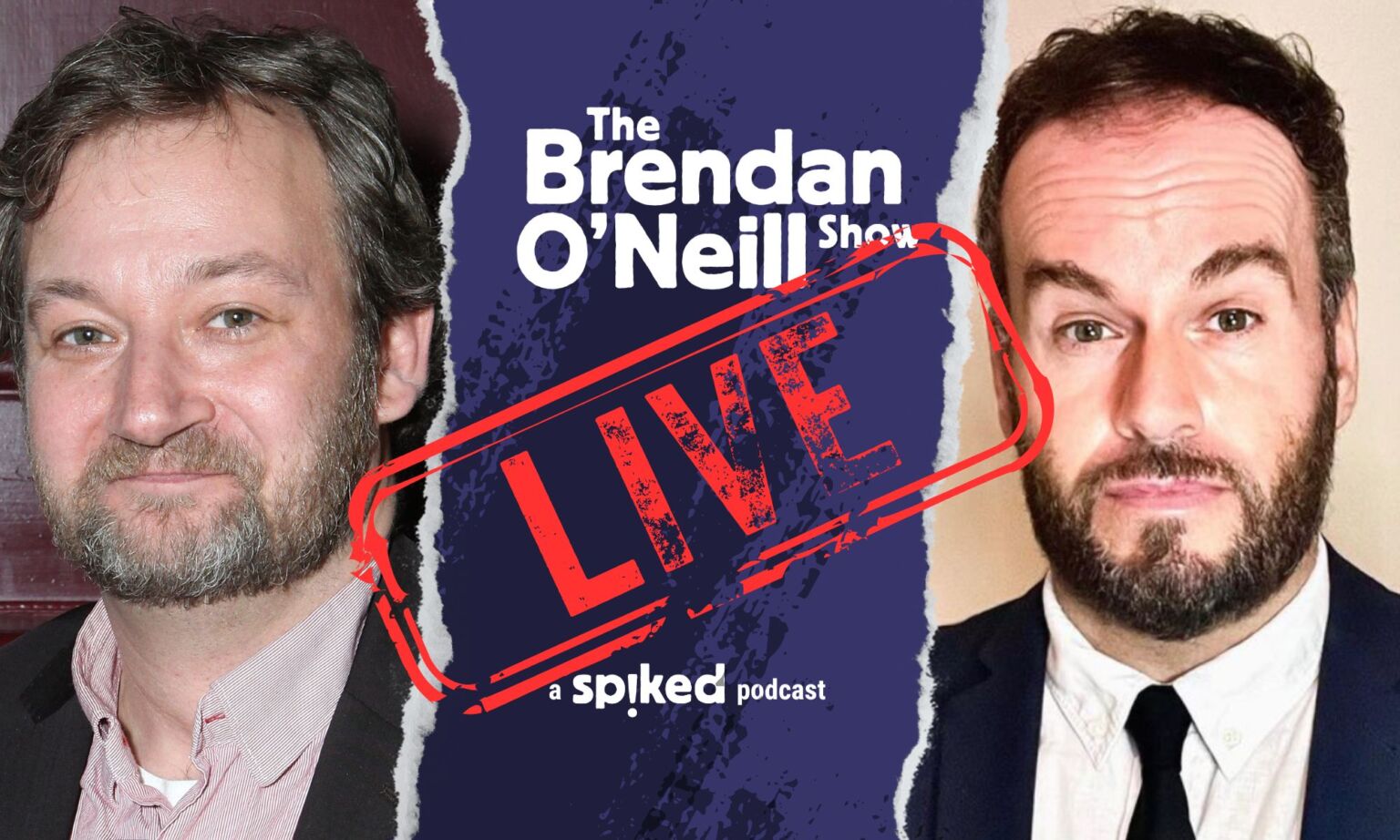How CNN was duped by a fake Syrian prisoner
When journalists think they are the stars of the story, they lose all grip on objectivity.

Want to read spiked ad-free? Become a spiked supporter.
As if mainstream US media had not had a terrible enough year so far, CNN and its chief international correspondent, Clarissa Ward, ended 2024 with the mother of all cock-ups. She thought she had discovered a poor bedraggled ‘prisoner’ of Syrian dictator Bashar al-Assad’s brutal regime. She brought him out of the jail, limping and thirsty, into the light. The trouble was, it turned out to be the fakest of fake news.
The prisoner was not, it turns out, ‘an ordinary citizen imprisoned by the regime’, as CNN first reported. He was actually, as the broadcaster was forced to admit yesterday, ‘a lieutenant in the Assad regime’s Air Force Intelligence Directorate’. He was essentially one of the dictator’s henchmen – a notorious regime torturer, no less.
Many things can go wrong for journalists in the fog of war. But it’s still shocking to see Ward, a senior journalist in a major news organisation, so easily duped.
In the original piece, broadcast on 11 December and billed as an exclusive, Ward breathlessly narrates what she claims is a serendipitous rescue of ‘Adel Ghurbal’. He tells her that he has been locked away for three months, and that he had been without food or water for the past four days as the rest of the prison emptied out.
It’s impossible to overlook Ward’s emotional, even melodramatic, behaviour in her reportage. ‘You’re okay, you’re okay’, she repeatedly whispers to the man while exhaling loudly through pursed lips. She looks around with wide eyes and clutches at her chest in seeming shock. At the same time, the ‘victim’ stumbles around and clings to her. The emotional sensationalism of the piece is off the charts.
The problem for Ward and CNN was that ‘Ghurbal’ looked suspiciously clean, unharmed and recently fed in the footage. So almost as soon the piece was broadcast, social media began buzzing with questions. Why is the man wearing a pristine and warm-looking coat? Why are his fingernails so clean? And why is the cell in which he claimed to have been locked for months free of any visible waste?
‘There is still so much we don’t know’, Ward solemnly told CNN anchor Julia Chatterley on the day the piece aired. ‘We don’t know why the regime took Adel Ghurbal, and we may never know.’ Famous last words.
Five days later, the New York Post revealed that Ghurbal is actually Salama Mohammad Salama. ‘[Salama] worked at several security checkpoints in Homs and was involved in theft, extortion and coercing residents into becoming informants for Assad… He also killed civilians during the Syrian civil war in 2014 – and allegedly detained and tortured young men on bogus charges.’
All journalists can make mistakes, of course. But Ward’s credulity, her willingness to believe this man’s sensationalist claims, is testament to a deeper problem. Too many journalists lack distance from the events they’re reporting on. They’re too close, too emotionally involved.
This is clear from a personal interview Ward gave to a CBS News podcast in 2021, in which she spoke of her anguish over the war in Syria, the US’s unwillingness to intervene and stop Assad, and how she believed it had cost the lives of some of her friends. ‘I think all of us who covered Syria closely just went through the emotional wringer, losing so many people that we loved’, she tells the podcast. ‘I will cop to the fact that I think I crossed the line in Syria. I became so emotionally involved and I was crushed by the US response and the US policy.’
This illuminating interview captures well how too many journalists have become the stars of their own movies, heroes in their own stories. They see themselves not as neutral observers, but as active participants. And as a result they abandon any commitment to objectivity. When that happens, as this embarrassing episode shows, they soon start to prefer fiction to fact.
Jenny Holland is a former newspaper reporter and speechwriter. Visit her Substack here.

James Dreyfus and Brendan O’Neill – live and in conversation
Wednesday 18 December – 7pm to 8pm GMT
This is a free event, exclusively for spiked supporters.
Picture from: CNN.
Who funds spiked? You do
We are funded by you. And in this era of cancel culture and advertiser boycotts, we rely on your donations more than ever. Seventy per cent of our revenue comes from our readers’ donations – the vast majority giving just £5 per month. If you make a regular donation – of £5 a month or £50 a year – you can become a and enjoy:
–Ad-free reading
–Exclusive events
–Access to our comments section
It’s the best way to keep spiked going – and growing. Thank you!








Comments
Want to join the conversation?
Only spiked supporters and patrons, who donate regularly to us, can comment on our articles.